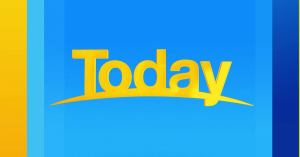It hasn’t been a secret that the rollout of the one-time $1,200 stimulus checks was riddled with problems. However, it appears that there has been an alarming trend in how and when the payments were issued, with Black, lower-income households typically receiving their payments later than white, wealthier counterparts.
City a survey from the Urban Institute, CNBC reported the findings, which indicated that those who needed the payment most were most likely to be waiting for one. While 70 percent of families had received payment by mid-May, the survey revealed some “significant disparities,” including income, race and citizenship status. Income appeared to be the biggest factor, with 77 percent of eligible adults above the federal poverty level, while less than 59 percent beneath it had not. However, the institute did point out that some of the issue could be that those below the poverty level typically don’t file taxes, which could mean the IRS didn’t have the most recent address on file.
Videos by PopCulture.com
Additionally, just over 45 percent of those who live in poverty who’ve yet to receive payments have a bank account. There’s also the matter that Hispanic and Black recipients were less likely to report receiving their check than white recipients. The survey reported that 74 percent of non-Hispanic White adults received a check, while 69 percent of Black adults and 64 percent of Hispanic adults did. That number actually went down to 54 percent for Hispanic families with non-citizen family members, which has been a problem with the stimulus payments.
The Urban Institute also noted that the only option to update information was, at one point, limited to the ‘Get My Payment‘ online portal on the IRS website. That itself was limiting, given the lack of access to the internet in poorer communities, which the Urban Institute noted. “Taking the extra step of applying through the IRS web portal required internet access,” they noted in the findings. “But one in five potentially eligible non-recipients who neither filed an income tax return nor received Social Security benefits reported having no internet access at home.”
While several issues with the first round of stimulus payments are likely to continue through 2021, there’s been quite a bit of contention over the proposed second round of payments. The House had previously passed the HEROES Act back in May, there’s been no action in the Senate since. However, Majority Leader Mitch McConnell has repeatedly assured it will be a priority when they reconvene on Monday.








